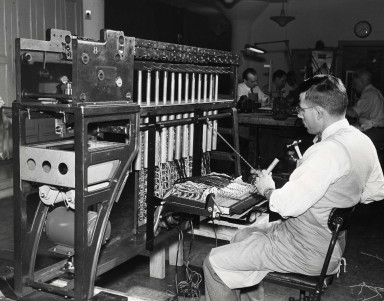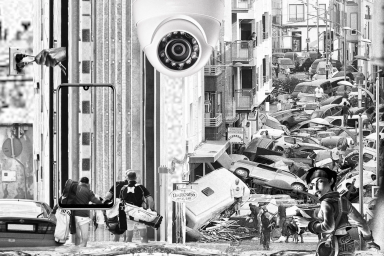Infrastructuring the digital (urban) state
or: Digital state-making on the municipal level
This project examines municipal administrations as actors and objects of digital state-making practices. Attending to the politics involved in digital state-making, it views such practices as contested and processual. That is, drawing on science and technology studies (STS) and infrastructure studies, the project foregrounds the socio-material work unfolding within administrations, through which digital infrastructures are constructed, implemented, maintained, or negotiated and resisted.
infrastructuring
municipal digitalization
digital state
Context
As both objects and agents of political futures, digital infrastructures function as an extension of the state.1 Many states and cities hope to improve state services or address planetary challenges by harnessing the capacities of digital information and communications technology (ICT).2 Digitalization is thus mobilized in policy discourses as a necessary step towards maintaining the state’s capacity to deliver its public services. Yet, digital projects often fall short on their promises and neglect the sometimes mundane work of implementation and maintenance, which often stands in contrast to the shiny imaginaries of policies. Approached through the lens of ‘infrastructuring’,3 this work involves not only applying technologies to but also aligning institutions, values, routines, practices, and knowings with modes of organization that digital technologies offer. The project views such work as a practice of digital state-making and examines municipal administrations as central sites where it unfolds and is negotiated, resisted, and adapted.
Aims
It is hoped that the resulting understanding of digital state-making can enrich critical analyses of both digital urbanism and states in an integrated manner, as well as contribute to a practical sensibility by making visible the relationships between social and technical elements necessary to align and the (unintended) consequences that arise from such alignment. The ways in which technologies become consequential for administrations cannot be easily reduced to clear-cut technological effects, but are linked to a process (with friction) to make both fit each other. That process comes with shifting problematizations, that is, different ways of constituting (and solving) a bureaucratic, a technical, or a social problem. Drawing on anthropology, STS, infrastructure studies, and political science, one central research question guiding this project is not whether digital infrastructures improve municipal administrations per se, but rather how they are restructured in order for digital infrastructures to become a sensible solution, and what sort of tensions emerge in the process of implementing these changes. Examining such ‘actually existing’4 digitalizations – which may differ from the imaginaries that initially accompanied them5 – offers insights into the politics of digital state-making as a future-making project.
Research design
The PhD project builds on an interdisciplinary research project at the Chair of Political Sciences at the Helmut Schmidt University, which is centered on the case study of a medium-sized German city. Through the city’s efforts to digitalize the process of building permits, this PhD project traces municipal digital state-making along three lines of inquiry: (1) the competing imaginaries of digital governance within administrative digitalization, (2) the communicative work of digital infrastructuring, and (3) the problematization of bureaucracy through digital infrastructures. It draws on semi-structured interviews with local politicians, administrative staff, and project leaders, both within the case study city and other municipalities, as well as personnel working in federal ministries and national organizations. The research is accompanied by qualitative analyses of policy documents and networking events with 20–30 municipalities which serve as ethnographic research sites. Beyond digital imperatives and managerial approaches, the methods seek to contribute to an ‘ethnographic sensibility’6 of digital state-making and to nuance it as a practice of future-making with political implications.
Supervisor:
- Prof. Dr. Gary Schaal




